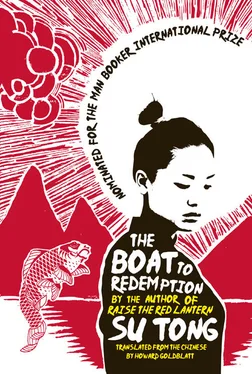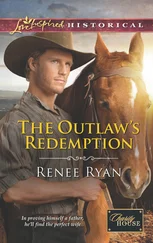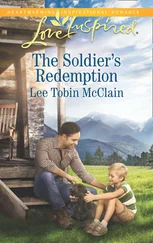But today my mother’s image followed me relentlessly. It reappeared at Number 9 Workers and Peasants Avenue, and beneath the date tree. Her indignant gaze crossed the wall and glared at me, filled with disappointment that I hadn’t improved over the years. ‘I don’t want you climbing that tree. Get down here and come home. Come home!’ I was clear-headed, and knew I could not do as she wanted. The home was within reach, but, unhappily, it was no longer mine. I couldn’t go back.
As I sat in the tree, my hip began to ache, the effect of Old Seven’s vicious kick. It could turn out to be a permanent injury. I rubbed and rubbed, and suddenly a flood of unconnected thoughts came together. For the first time I was actually thinking about my life. Father and Mother: why had I chosen him over her? If I hadn’t fled from her side, would my future have been brighter? Who would have offered me the better education? By staying with her I’d have missed out on the barge and the river, but at least I’d have had a home on the shore. The shore or the river: which life would have been better? Then I heard myself reply forlornly, It’s all kongpi , yes, kongpi . Neither life offered anything good. The shore, the river — both bad. I’d be better off staying here, up a tree.
The higher I climbed, the more entranced I became with the branches and leaves. A brown dog spotted me and walked to the base of the tree, where it barked ferociously, startling me and disturbing the stillness on Workers and Peasants Avenue. I thought that Old Seven and his pals had caught up with me, so I climbed even higher. When I looked down, I saw someone open his door and stick his grey head out to see where the noise was coming from. Seeing nothing, he pulled his head back and closed the door.
The dog’s barking had also attracted the attention of the boy with the iron hoop, who stopped at the foot of the tree, looked up and spotted me. ‘What’s somebody your age doing climbing a tree?’ he shouted, surprised by what he saw.
‘Nothing,’ I said. ‘I was tired, so I came up here to get some sleep.’
‘Liar,’ he said. ‘Only birds sleep in trees. You’re no bird.’
‘No,’ I said. ‘I’m worse off than a bird, because I don’t have a home on the shore and must sleep in trees.’
He didn’t know whether to believe me or not. But then he shouted, ‘You’re lying. You said you were from the Housing Office. You people fix houses, not trees, so what are you doing up there? Planning a burglary?’
‘Is that what you think people who climb trees do? Who do you think you are, you little bastard? You listen to me — when I lived here you were still in your mama’s belly!’
The boy picked up his hoop and dashed over to a nearby gate. I knew he’d gone to fetch an adult, so I scrambled down the tree. I couldn’t keep hiding up a tree. It dawned on me as I jumped down that my hands were empty. I didn’t have my bag; I must have left it in the barbershop. Also, my quilt stuffing should be ready by now.
Keeping my eyes peeled the whole time, I made my way back to the barbershop door, where I carefully surveyed the surrounding area. I didn’t see anything out of the ordinary, except for glinting shards of glass on a rubbish pile. All my doing. I could distinguish the pieces of mirror from the shattered soft-drink bottles. The shop had closed early. The barber’s pole had been turned off, and the sunflowers, seemingly shaken by what had happened, were hiding behind their big leaves, no longer interested in showing their faces. The front door was closed and locked, and there was no one inside. A sign stuck up on the glass door piqued my curiosity, so I went over to see what it said. It took my breath away. Every word slammed into my chest like a bullet.
STARTING TODAY, KU DONGLIANG OF THE SUNNYSIDE FLEET
IS BANNED FROM THIS SHOP.
SIGNED: EMPLOYEES OF THE PEOPLE’S BARBERSHOP, MAY 1977
Banned! They’d banned me from the barbershop! What right did they have to keep me from entering a public establishment? I pounded on the door. There was no one inside, but the noise brought out the cotton-fluffing couple across the street, who were covered from head to toe with cotton fuzz. The man had my bag in his hand, his wife was holding the rolled-up quilt stuffing. ‘You ran off just in time,’ said the old man, smacking his lips at my good fortune. ‘There were actually four of them, but the one called Yama went to buy cigarettes. If he’d stuck around, you’d have been in worse trouble. You’ve heard of him, haven’t you? He’s cut the arms off five men in Phoenix. I personally witnessed two of them.’
The woman stopped her husband from saying more and handed me my bag and the cotton stuffing. ‘You’ve read that announcement,’ she said, pointing to the barbershop. ‘They asked me to tell you to stay away from now on. They don’t want you in there any more.’
I took my bag and felt around inside. My diary was missing, which proved something my father often said: You’re sure to lose anything you don’t want to lose. All the jars and cans were still there, everything but my diary. ‘Where’s my diary?’ I blurted out in alarm. ‘Who took my diary?’
My panicky shout gave them a fright. The man crouched down to help me rummage through the bag, while his wife, obviously upset, frowned and headed back into the shop, muttering unhappily, ‘This town’s full of bad people. We were being nice, keeping your bag for you, just so you can accuse us of stealing your stuff. We may be poor, but we’re not so poor we’d take your diary!’
FATHER’S PUNISHMENT was unavoidable.
Someone in the fleet must have heard about the scandal I’d caused in the barbershop or had seen the announcement on the door. Either way, they couldn’t keep it to themselves and just had to tell my father. Standing on the bow, rolling pin in one hand and a coil of rope in the other, he was waiting for me.
Everyone could see that he was fuming. ‘What’s the rope for, Old Ku?’ someone asked, probably already knowing the answer.
‘I’m waiting for Dongliang. Have you seen him?’ No one had. ‘Don’t worry about it,’ Father said. ‘I think I know where he is.’
‘But what’s the rope for?’ they asked. He was about to say something, but stopped, reluctant to publicize a family scandal.
Sun Ximing, having heard that Father hadn’t had anything to eat, brought over some food. ‘Dongliang will be back soon to make dinner,’ he said to comfort Father. ‘This will tide you over for now.’
Father rejected the overture. ‘I’ve got too much anger in me to eat. I’m not waiting here for lunch. The audacity of that boy — he’s five hours late.’
‘Dongliang’s not a boy any more,’ Sun said. ‘Something must have come up to keep him ashore. Maybe he had a date. He’ll be back sooner or later, so what’s the problem? You’re not thinking of tying him up, are you?’
‘You may not know this, Old Sun, but minor errors often grow into major ones. There are rules for a country and rules for a family. His thinking and his moral character are flawed, and if national laws don’t apply, domestic law has to. He must be tied up!’
Bag and cotton stuffing in hand, I arrived at the piers where the barges were moored. The first thing I saw was Father standing on the bow with the coil of rope in his hand. Some people on the other barges had gloating looks on their faces, others were waving to keep me from going aboard. Father was fuming. I’d done the one thing he could not tolerate: I’d defied his authority. I was five and a half hours late, and I knew I was in for a punishment. Five slaps in the face, maybe, or five hours on my knees. Maybe he’d make me write a five-thousand-word self-criticism. It all depended on my degree of contrition. I’d never even considered the possibility that he’d actually be planning to tie me up. I was twenty-six years old. Six-Fingers Wang’s daughters were watching me, so was Chunsheng’s sister. Li Juhua could have been peeking at me out of the oil-pumping station for all I knew. My hip was sore, I was tired, and he was planning to tie me up! If I let him do that in front of all those people, I’d be ashamed to show my face anywhere after that. I’d be better off tying myself to a rock and jumping into the river.
Читать дальше












